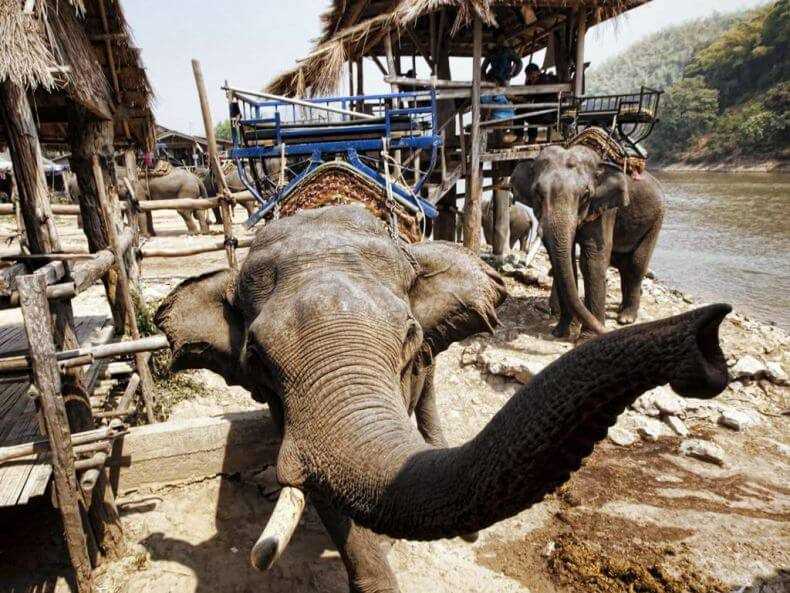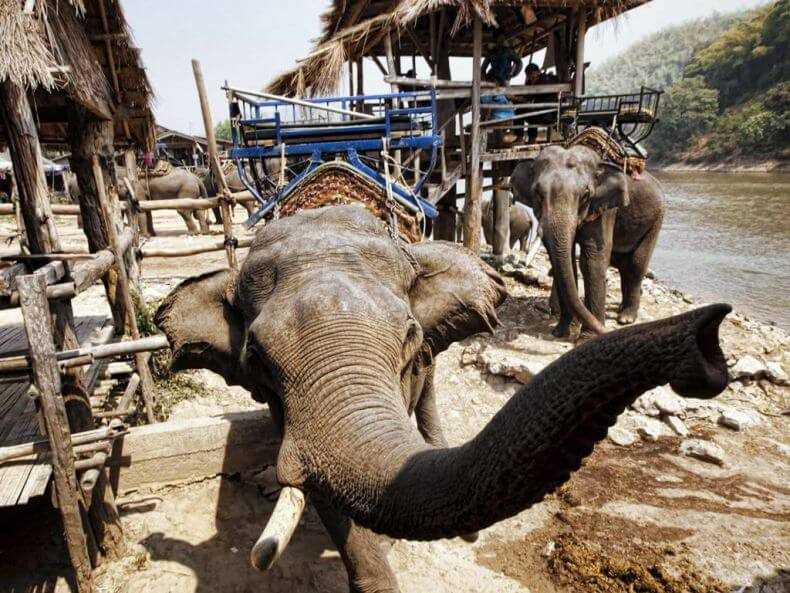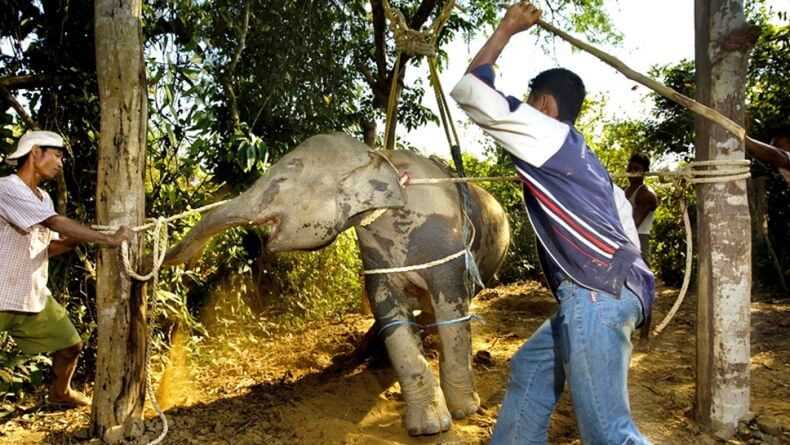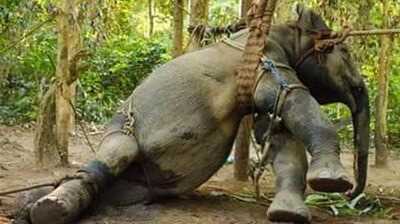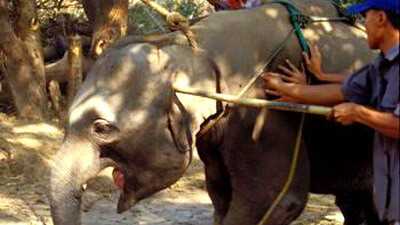Every tourist who has ever been to Thailand would not miss the opportunity to ride elephant, take selfies on its back, or admire its performances in the circus show. However, almost none of them even suspect how Thais train and subdue people these amazing and strong animals to work in the tourism industry (as well as in logging). The answer lies in an incredibly sad and disconcerting story, the original of which we have translated from several English-language primary sources.
Thai animals are trained and subdued by humans to work as hikers (as well as loggers).
Heads up! This article may shock particularly impressionable people!
The tribalism of the time, modern politics and tourists’ ignorance of the realities played a key role in what we see today in many countries around the world. These days, elephants have become a symbol of tourism, especially in Southeast Asian countries.
The elephants have become a symbol of tourism.
Elephant plight
.
For years, for the sake of tourism income, elephant owners have subjected their animals to the shameful acts of street begging, circus performance, forced breeding, horseback riding, not to mention industrial logging.
If you think that elephants enjoy the glory and life within the confines of the circus, the grueling job of felling the jungle, and the fact that they have the choice whether to take people on a trip, then you are deeply mistaken. What if we told you that an elephant only allows people to ride it out of fear? Fear of repeating the torture he has had to endure before.
.
Although Indian elephants, unlike African elephants, are excellent at learning to ride and perform other tasks, the procedure still requires tons of effort. In Thailand, the process of subduing them is called The Phajaan Ceremony, meaning “breaking the spirit” of the animal.
Phajaan literally means “to crush” in Thai.
The Phajaan Ceremony goes deep into the history of Thailand. In those days, the exorcism of the wild elephant spirit and its subjugation was performed by a tribal shaman. As no one had yet come up with a gentler way of training (maybe elephants can’t be tamed in any other way), this ceremony has survived to the present day.
The essence of it is that they are physically and mentally tortured for a week or more. The process begins by stealing a baby elephant from its mother of six months of age, then cramming it into a cramped cage. His feet are tied, feeding is withheld for a very long time, while he is beaten with a weapon resembling a small pickaxe, and the sensitive insides of his ears and trunk are damaged.
After the “wild elephant spirit has been banished,” the animal will obey all commands of its master out of fear. The video below clearly demonstrates the aforementioned process.
Elephant never forgets a grudge
.
Each year thousands of elephants are taken to training camps and subjected to torture and abuse. Not all survive the ceremony, and those who endure it have lifelong physical and mental memories of a dark past. The scars on the animal’s skin, once inflicted with stabbing weapons, can be easily detected, even by inexperienced people.
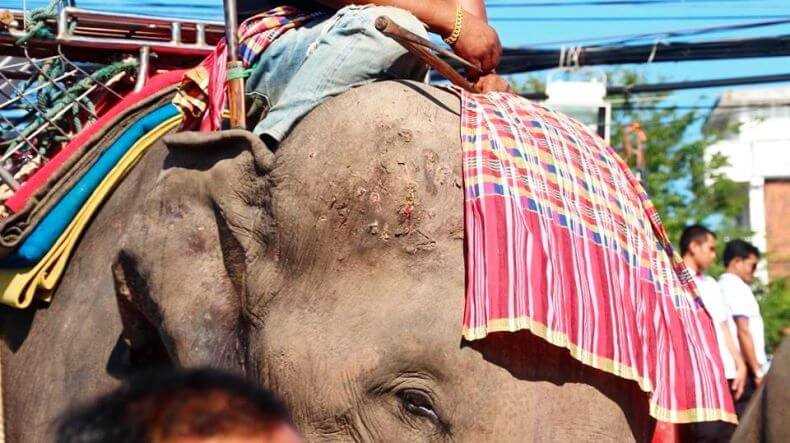
Dislocated hips and damaged spines in elephants are quite common in Thailand. These injuries are usually caused by forced breeding, poorly fitting saddles and excessive riding. The list of injuries could be endless.

